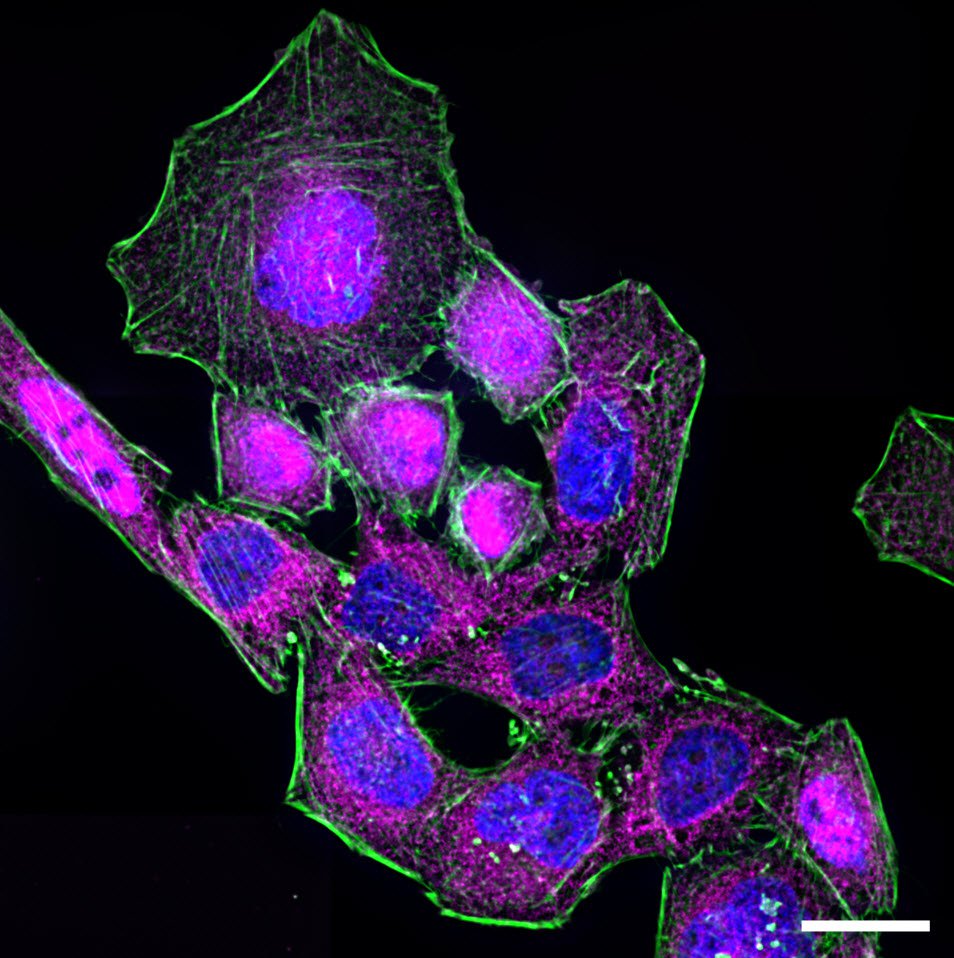
From Acute Defense to Chronic Disease
June 3, 2025
Key Points
- Inflammation is a double-edged sword: essential for healing but harmful when chronic.
- Chronic inflammation is linked to diseases like heart disease, diabetes, and cancer.
- New research targets specific pathways for innovative anti-inflammatory treatments.
Inflammation is a fundamental biological process that plays a critical role in the body’s defense mechanisms. It is a double-edged sword: while acute inflammation is essential for healing and protection, chronic inflammation can lead to a host of debilitating diseases. This report delves into the intricacies of inflammation, exploring its causes, types, mechanisms, effects on health, and the latest advancements in research and treatment. By understanding inflammation in depth, we can better appreciate its role in both health and disease.
What is Inflammation?
Inflammation is the body’s natural response to injury, infection, or harmful stimuli. It is a complex biological process involving immune cells, blood vessels, and molecular mediators. The primary purpose of inflammation is to eliminate the initial cause of cell injury, clear out damaged cells and tissues, and initiate tissue repair. As Medical News Today explains, “Inflammation is a key aspect of the body’s immune defenses. It can be acute or chronic. Symptoms can include swelling, heat, pain, and more.”
Types of Inflammation: Acute vs. Chronic
Inflammation is broadly categorized into two types: acute and chronic. Acute inflammation is the body’s immediate response to an injury or infection. It is characterized by symptoms such as redness, swelling, heat, and pain. This type of inflammation is typically short-lived and resolves once the underlying cause is addressed. For example, when you cut your finger, the area becomes red and swollen as the body sends white blood cells to fight off potential infections and repair the tissue.
Chronic inflammation, on the other hand, is a prolonged inflammatory response that can last for months or even years. It occurs when the body’s immune system continues to send inflammatory cells even in the absence of an external threat. Chronic inflammation is often subtle and can lead to tissue damage and the development of various diseases. As NCBI Bookshelf notes, “Chronic inflammation is also referred to as slow, long-term inflammation lasting for prolonged periods of several months to years.”
Causes and Mechanisms of Inflammation
The causes of inflammation are diverse and can range from physical injuries to infections and autoimmune disorders. Acute inflammation is typically triggered by external factors such as cuts, burns, or infections. The body’s immune system responds by releasing chemicals that increase blood flow to the affected area, leading to the characteristic symptoms of inflammation.
Chronic inflammation, however, can result from a variety of factors, including persistent infections, exposure to irritants, and autoimmune disorders. For instance, autoimmune diseases like rheumatoid arthritis and lupus occur when the immune system mistakenly attacks the body’s own tissues, leading to chronic inflammation. As WebMD explains, “In certain diseases, your body’s defense system — your immune system — triggers inflammation when there are no invaders to fight off.”
The biological mechanisms of inflammation involve a complex interplay of immune cells and signaling molecules. When the body detects a threat, immune cells such as macrophages and neutrophils are activated. These cells release cytokines, which are signaling molecules that promote inflammation. Cytokines attract more immune cells to the site of injury or infection, amplifying the inflammatory response. Over time, if the inflammatory response is not properly regulated, it can lead to chronic inflammation and tissue damage.
Effects of Chronic Inflammation on Health
Chronic inflammation is a significant contributor to many serious health conditions. It is linked to a wide range of diseases, including cardiovascular diseases, diabetes, cancer, and neurodegenerative disorders. For example, chronic inflammation can lead to the buildup of plaque in the arteries, increasing the risk of heart disease and stroke. As Harvard Health Publishing notes, “Persistent, low-level (chronic) inflammation can be harmful to your health.”
In addition to physical health, chronic inflammation can also impact mental health. Research has shown that inflammation is associated with conditions such as depression and anxiety. The exact mechanisms are still being studied, but it is believed that inflammatory cytokines can affect brain function and contribute to mood disorders.
Current Research and Advancements in Inflammation
Recent research has shed light on new mechanisms and potential treatments for inflammation. One promising area of study is the role of granzyme K, a protein that drives inflammation and tissue damage in autoimmune and chronic inflammatory conditions. As Harvard Medical School reports, “Researchers identify a new player in human immunity that can go rogue and turn the immune system against the body’s own tissues.”
Another exciting development is the discovery of dual inflammasome inhibitors, which target specific inflammatory pathways. These inhibitors have the potential to treat a wide range of inflammatory diseases, from neurological disorders to cancers. As Hudson Institute of Medical Research explains, “A new class of anti-inflammatory drug is opening a world of possibilities for treating everything from neurological diseases to cancers.”
Anti-Inflammatory Treatments and Prevention Strategies
Managing inflammation often involves a combination of medical treatments and lifestyle changes. Anti-inflammatory medications, such as nonsteroidal anti-inflammatory drugs (NSAIDs) and corticosteroids, are commonly used to reduce inflammation and relieve symptoms. However, these medications can have side effects, and long-term use is not always recommended.
Diet also plays a crucial role in managing inflammation. An anti-inflammatory diet, rich in fruits, vegetables, nuts, and fatty fish, can help reduce chronic inflammation and support overall health. As Johns Hopkins Medicine notes, “Choosing foods to reduce chronic inflammation is about variety. Specific components in food work together to reduce inflammation.”
Exercise is another important factor in controlling inflammation. Regular physical activity has been shown to reduce inflammatory markers in the body and improve overall health. However, it is important to strike a balance, as excessive exercise can lead to increased inflammation.
The Future of Inflammation Research
The field of inflammation research is rapidly evolving, with new discoveries and treatments on the horizon. One area of focus is the development of targeted therapies that can specifically block harmful inflammatory pathways without affecting the body’s overall immune response. For example, researchers are exploring the use of engineered immune cells to tame inflammation and prevent tissue damage. As University of California, San Francisco reports, “The technology uses engineered T cells that act as immune ‘referees’ to soothe overreacting immune responses.”
Another promising area is the study of mitochondrial function in inflammation. Mitochondria, the powerhouses of the cell, play a key role in regulating the immune response. Targeting mitochondrial function in immune cells could lead to new treatments for inflammatory diseases. As Northwestern University Feinberg School of Medicine explains, “Scientists have discovered how mitochondria influence the body’s immune response through modulating specific cell signaling pathways.”
Conclusion
Inflammation is a complex and multifaceted process that is essential for protecting the body from harm. However, when inflammation becomes chronic, it can lead to a host of serious health problems. Understanding the causes, mechanisms, and effects of inflammation is crucial for developing effective treatments and prevention strategies. With ongoing research and advancements in the field, there is hope for new and innovative therapies that can better manage inflammation and improve overall health.
By adopting a healthy lifestyle, including a balanced diet and regular exercise, individuals can take proactive steps to reduce chronic inflammation and lower their risk of associated diseases. As the science of inflammation continues to evolve, it is clear that this biological process will remain a key focus in the quest for better health and well-being.
www.MyWellnessScout.com
